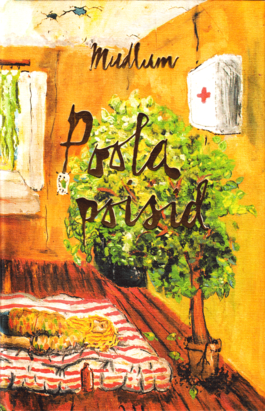EU Prize for Literature Laureate 2020
To write about one of the most distinctive and vibrant cultural groups to emerge in Estonia in recent decades – and one of the most scandalous – seems to have required the action to be moved at least 500 km away from the country.
In this novel, Mudlum has placed her charismatic circle of characters – inspired by the Estonian cultural group ZA/UM – in a kind of retro-Poland, and given them Polish-sounding names and addresses. While traces of the actual Poland, the one we can all visit, appear from time to time, there’s no real attempt to convince the reader that the events described in the book actually took place in Poland, or that the book’s events aren’t really a chronicle of the group’s activities in Estonia. It’s fiction; its author can afford to be playful. As an author, Mudlum’s more playful than average.
The book’s young intellectuals operate in a small, productive bubble that smells of coffee grounds, dog-ends and dust. There are important discussions about the (nuclear) family, work and authorities. At the same time, they make plans for the future, not only for themselves, but for their culture and country – and a new world order wouldn’t be asking too much either, at least initially. But then life happens, and they have to start raising children, renting rooms, and making choices that don’t fit in with their favourite theories.
‘Polish Boys’ is Mudlum’s first novel, and maybe it shows slightly in the structure. The plot strands run along like rampant vines, and now and then you wonder if they’ve not spread out too far. Mudlum manages to keep them all together, however. ‘Polish Boys’ is still an extremely Mudlumesque novel, which among other things means that the narrator’s tone is wise but doesn’t indulge in philosophising. What’s also ultra-Mudlumesque is the way atmosphere is created by anthropomorphising objects, yet not personifying them.
There’s sternness, tenderness, reproach and compassion. All of which make it tempting to call Mudlum a pantheist.
What happens to young people with their own principles, though? Adults are definitely interested in knowing.
Review translated by Darcy Hurford

